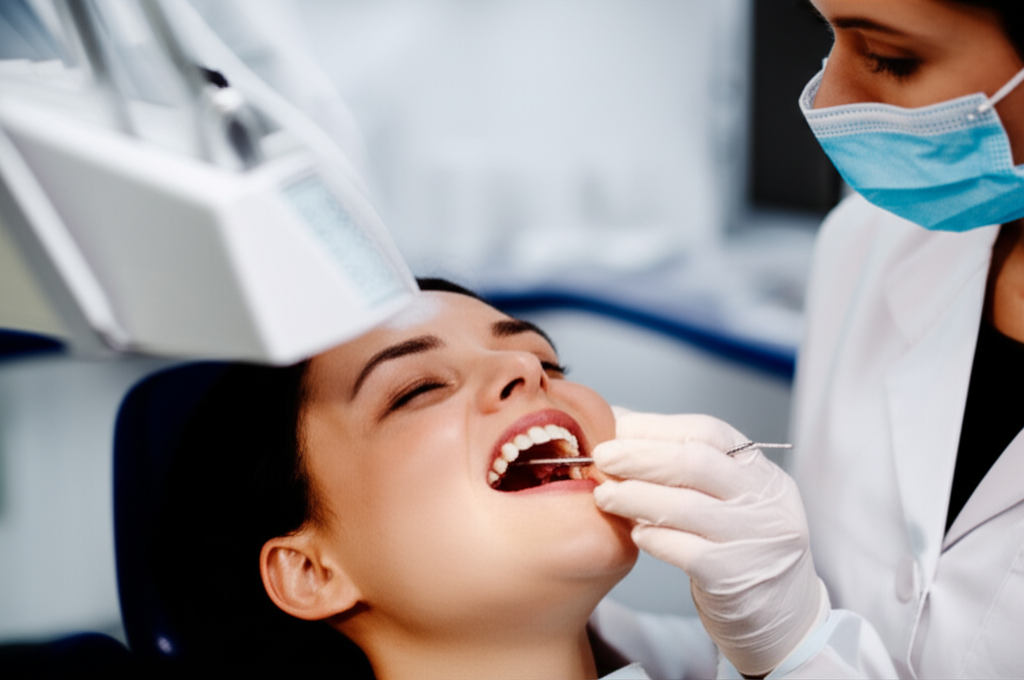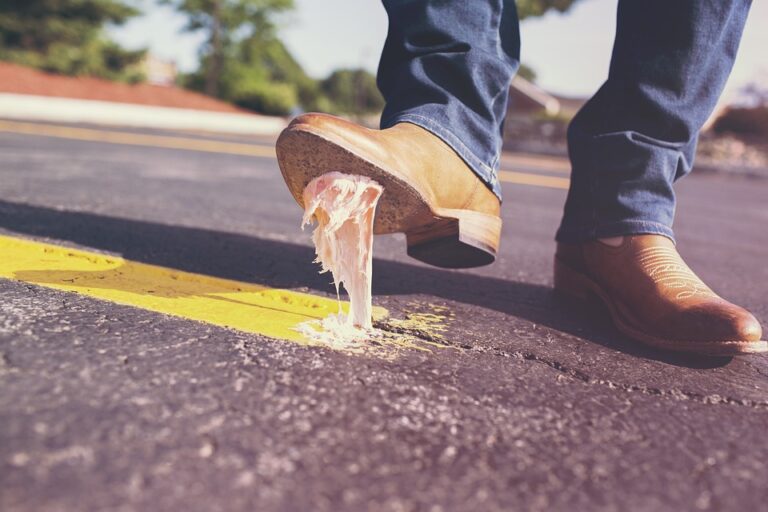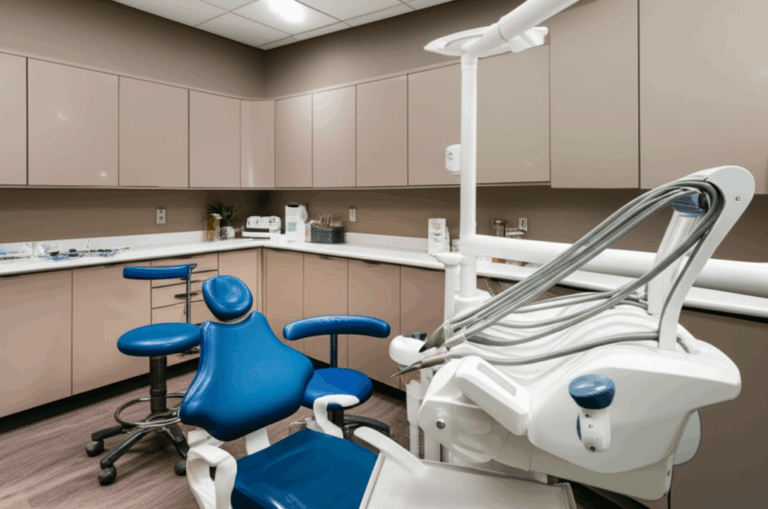
Can a Dental Hygienist Become a Dentist? The Definitive Guide
Are you a dental hygienist thinking about being a dentist? Maybe you’re wondering if it’s possible, how long it will take, and if it’s worth all the extra work. This guide explains the steps in plain and simple language and shares true stories from people who did it. If you want to help more people, make more money, and grow in your job, you might find this article useful!
Table of Contents
Is It Possible for a Hygienist to Become a Dentist?
Let’s get right to it—yes, a dental hygienist can become a dentist. But, it’s a long, hard road, and it’ll take your time, energy, and money.
Why do so many people ask this? Dental hygienists see dentists every day. You watch them do exams, make decisions, and do procedures you can’t. You might think, “Can I do that too?” The answer: yes. The challenge: you’ll need more training.
The real question isn’t “Can I?” but “Am I ready for this big work?”
Do Dental Hygienists Need More Schooling to Be a Dentist?
Yes, you need much more school. Most dental hygienists have an Associate (AS) or Bachelor (BS) degree in dental hygiene. Dentists need a Doctor of Dental Surgery (DDS) or Doctor of Dental Medicine (DMD) degree.
Here’s a simple chart to show the difference:
| Role | Degree / Education Needed |
|---|---|
| Dental Hygienist | AS or BS in Dental Hygiene |
| Dentist | DDS or DMD + Science Classes + DAT |
Even if you finished college, dental schools want some special science classes—sometimes not included in dental hygiene programs. It might feel like finishing one climb only to start another.
What Are the Steps to Apply to Dental School?
Let’s break the steps down like stops on a road trip. You need to do each one to keep going:
It sounds like a lot, but if you do one step at a time, it won’t feel too big.
What Prerequisites Do Hygienists Need for Dental School?
This is sometimes the hardest part. Many dental hygienists find they need more science classes. Here’s what most dental schools want:
- Biology (with lab)
- General Chemistry (with lab)
- Organic Chemistry (with lab)
- Physics
- Biochemistry
- Microbiology
- English
Even with a degree, you may need to take extra classes. Some people do these at local colleges or special programs.
Tip: Ask the dental schools you like what they need. Don’t guess! Each school is a bit different.
If you’re interested in other jobs in keeping teeth healthy, here’s some info about teeth health and dental care.
How Important is the DAT for Dental Hygienists?
The Dental Admission Test (DAT) is really important. Dental schools use it to check if you know science and can solve problems.
What’s on the DAT?
- Science topics (biology, chemistry, organic chemistry)
- Perceptual skill (like looking at shapes)
- Reading and understanding
- Simple math
People who get in usually score 19 to 21 out of 30. You’ll need to study hard, especially in subjects you didn’t do a lot in hygiene school, like organic chemistry.
Use study books, online questions, and practice tests to get ready.
Does Dental Hygiene Experience Help Your Application?
You might ask, “Does working as a hygienist help me?” Yes—it really does!
Here’s how it helps:
- You’ve helped lots of patients—schools like that.
- You already know how a dental office works.
- You’re good with patients and explaining things.
- You can show why you want a bigger job.
Any downsides?
Just remember you’ll need to learn new things. Go in with an open mind.
In your personal story and talks, bring up real stories from work and explain why you want more training.
What is Dental School Like for Former Hygienists?
Dental school is tough. Four years of learning, lab work, and real patients. Even if you’ve worked as a hygienist, this will be new and hard.
The Classes
- Year 1-2: Classroom learning—deep science like anatomy, how bodies work, and medicines.
- Year 3-4: Seeing patients (with teachers watching). You’ll learn everything from filling teeth to small surgeries.
- Practice with Patients: Here’s where your hygiene work will help, especially talking to patients and keeping things clean.
No matter how good you are at cleaning teeth, dental schools don’t let you skip any parts—you’ll start from the beginning.
How Much Time and Money Will This Transition Take?
Here’s the big question—how long will this take, and how much does it cost?
Time
- Finishing science classes: 1–3 years (if you need them)
- Dental school: 4 full years
- Total: Usually 5–7 years or more
Money
- School fees: $200,000–$350,000+ for four years
- Living costs: $60,000–$120,000 total (depends where you live)
- Lost hygiene pay: If you worked full-time, you might miss out on $70,000 or more a year for four years
It’s a lot. Most students need loans. Some schools have scholarships or help with money—ask about these early.
For important info about tools and skills in dentistry, check out this china dental lab resource.
What Are the Pros and Cons of Making the Change?
Big choices have ups and downs. Let’s look at the problem, what makes it hard, and some ideas for moving forward.
Problem
You want to help more people. Maybe you feel stuck as a hygienist. You wonder if being a dentist will bring new challenges, freedom, and more pay.
Agitate
But it might seem too much—you’ll give up pay, face hard classes, and maybe big loans. Friends might ask if you’re sure. Is it worth it?
Solution
If you enjoy science and want more say, it really could pay off:
- Higher pay ($180,000–$250,000 a year)
- Do more jobs (fix, lead, problem-solve)
- More freedom (maybe run your own place)
- Help people in more ways
Here’s a list of good and bad points:
| Pros | Cons |
|---|---|
| Make more money | Big costs, lots of student loans |
| Can solve harder cases | Years more in school |
| Can be a leader | Lose money while in school |
| Work for yourself, if you want | Hard work, maybe less time for you |
| Make important health decisions | Can be tiring, risk of burnout |
Success Stories and Real-Life Experiences
Let’s look at Emily—a made-up but real-to-life example many people can relate to.
Emily’s Story:
Emily worked as a dental hygienist for seven years. She loved helping people smile, but wanted to make bigger choices—like planning treatments for patients. She took extra science classes after work, and volunteered at a dental clinic. She practiced for her DAT test every week.
Her years as a hygienist helped her stand out. Dental schools liked her experience and how grown up she seemed. She used her patient skills to get through tough times in school. Even though she worried about money, she got some scholarships for people going back to school.
After school, Emily passed all the tests and got a job at a busy clinic. Patients liked her caring way and deep dental knowledge. Now, she runs her own office, helping other hygienists who want to become dentists too.
Should You Become a Dentist? My Final Thoughts
So, here’s the honest answer: becoming a dentist after being a hygienist is not only possible—lots of people do it.
But before you start, ask yourself:
- Do I want to learn more about science?
- Am I ready to live on less money for a while?
- Am I doing this because I like solving hard problems and being a leader?
- Can I handle the stress of school and spending money?
If you say yes, go for it. Use the people and experience you already have—you’re ahead of the game.
If you want to know about technology in dentistry, take a look at a digital dental lab, which shows new tools that dentists are using today.
If you want info about dental diseases and conditions, you should learn to help your future patients even better.
Key Points to Remember
- Yes, hygienists can become dentists, but you need to be ready—it will likely take 5 to 8 years and cost a lot.
- More school is needed—four years minimum, plus needed science classes.
- DAT scores are important. Start studying early, even on topics you haven’t practiced in a while.
- Hygiene experience is a big advantage. Use it in your applications and interviews.
- Being a dentist has big rewards—higher pay, more say, a chance to lead, and help people more.
- But there are risks. Check the facts, talk to people who did it, and think about money.
- Stay focused and ask for help—there are scholarships, mentors, and groups online.
Remember: To succeed in this job, you need heart, effort, planning, and a bit of courage.
References:
- American Dental Education Association (ADEA)
- Bureau of Labor Statistics (BLS)
- Dental School Admission Offices
- Stories based on real people who changed careers in dentistry
If you’re ready for this challenge, start planning today. The world needs more caring and skilled dentists.








